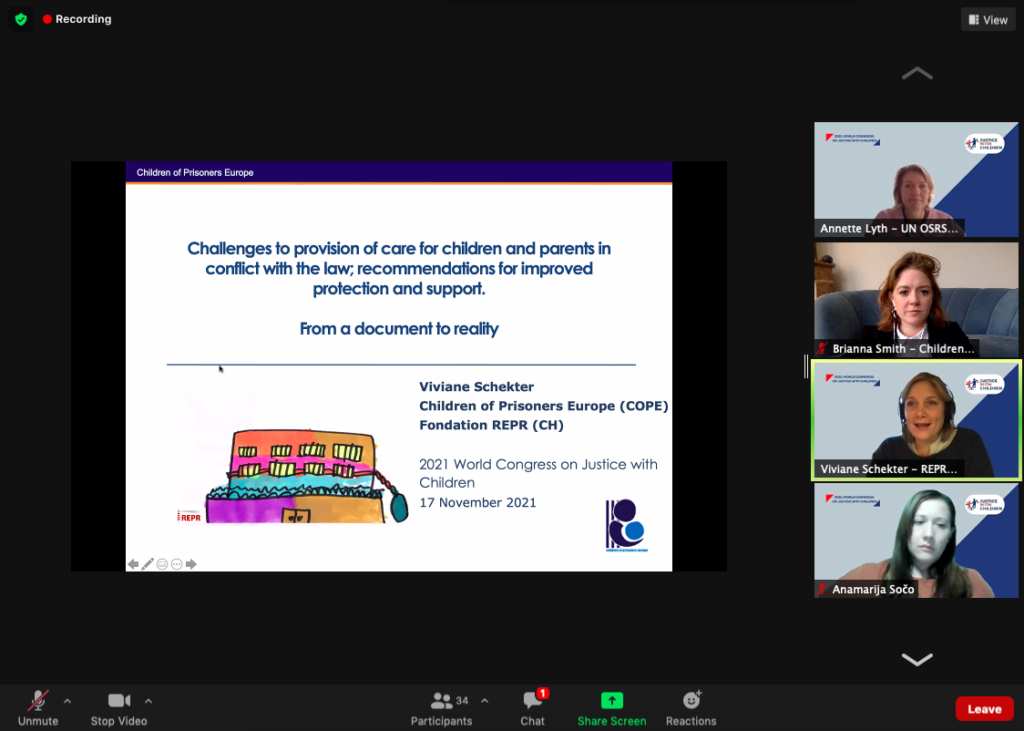COPE hosted a workshop on 17 November as part of the online 2021 World Congress on Justice with Children (15 to 20 November). COPE’s workshop, moderated by Annette Lyth, Chief of Office UN Special Representative of the Secretary General on Violence against children, included speakers Viviane Schekter, of Relais Enfants Parents Romands, Switzerland; member of Children of Prisoners Europe; Mihai Enache, Terre des Hommes, Romania; and Anamarija Sočo, of Status M, Croatia also affiliated with COPE.
The workshop focused on children and young people in juvenile detention services, including pregnant teenagers who are in prison, placing particular importance on incarcerated fathers as a subgroup of impacted individuals in the childcare system. Mihai Enache raised concerns about care and support provided both to teenage parents and their infants in Romania. Many children in detention centres do not have a plan or anywhere to go once their sentence is completed, they often don’t have a family they can count on and receive few visits, as the centres can be far away from families. Few teenage parents have the opportunity to place their infants into their relatives’ or parents’ care because of geographical distance and the lack of affordable resources to take care of the infant. Reintegration for these young people after their sentence is pivotal and there is a need for long-term support post-detention.
Anamarija Sočo, presenting on Status M’s work since 2018 to include boys and men in care for children, highlighted that prisoners and detained men are often fathers and tend to face challenges in maintaining contact and keeping links with their children. Status M has established partnerships in three prisons, also supporting minors in different systems of juvenile detention. There are often barriers to maintaining child-parent prison visits and therefore contact, including long distances, finances, difficulty with the prison staff and inflexible entry systems.

There was a consensus from the panel on the need to find better ways to obtain data on children impacted by imprisonment and to create verification methods for that data. The workshop was underpinned by the Council of Europe Recommendation CM/Rec(2018)5, as highlighted by Viviane Schekter during her presentation.

